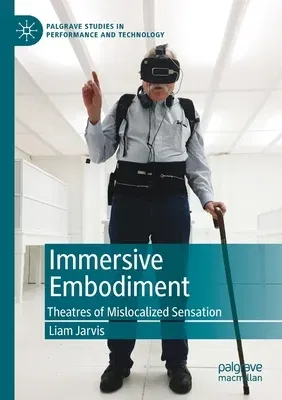Liam Jarvis
(Author)Immersive Embodiment: Theatres of Mislocalized Sensation (2019)Paperback - 2019, 28 November 2020

Qty
1
Turbo
Ships in 2 - 3 days
In Stock
Free Delivery
Cash on Delivery
15 Days
Free Returns
Secure Checkout
Part of Series
Palgrave Studies in Performance and Technology
Print Length
255 pages
Language
English
Publisher
Palgrave MacMillan
Date Published
28 Nov 2020
ISBN-10
3030279731
ISBN-13
9783030279738
Description
Product Details
Author:
Book Edition:
2019
Book Format:
Paperback
Country of Origin:
NL
Date Published:
28 November 2020
Dimensions:
21.01 x
14.81 x
1.57 cm
ISBN-10:
3030279731
ISBN-13:
9783030279738
Language:
English
Location:
Cham
Pages:
255
Publisher:
Weight:
362.87 gm

